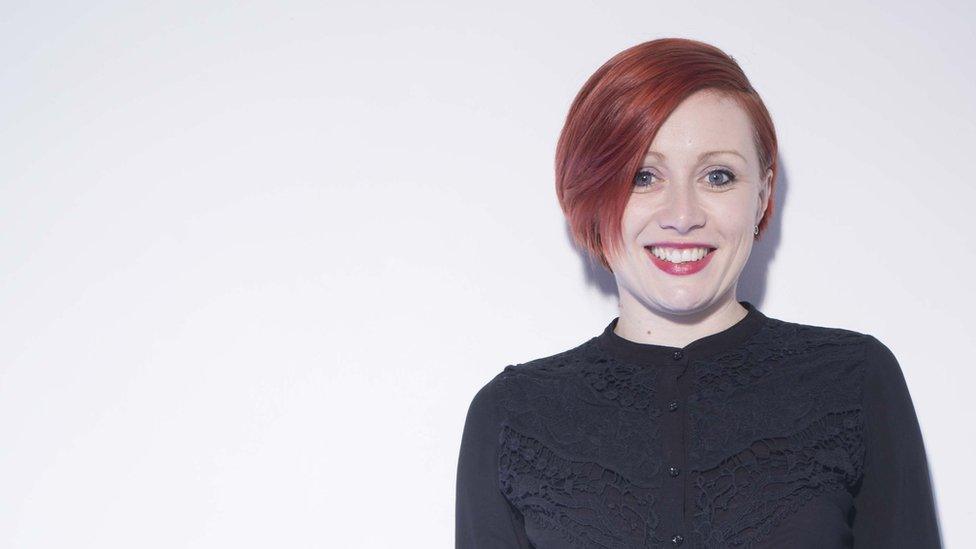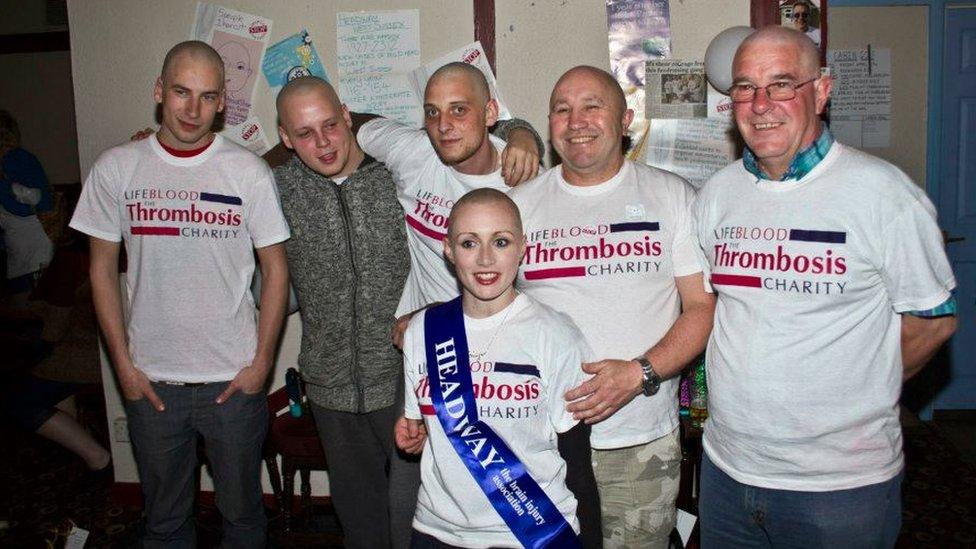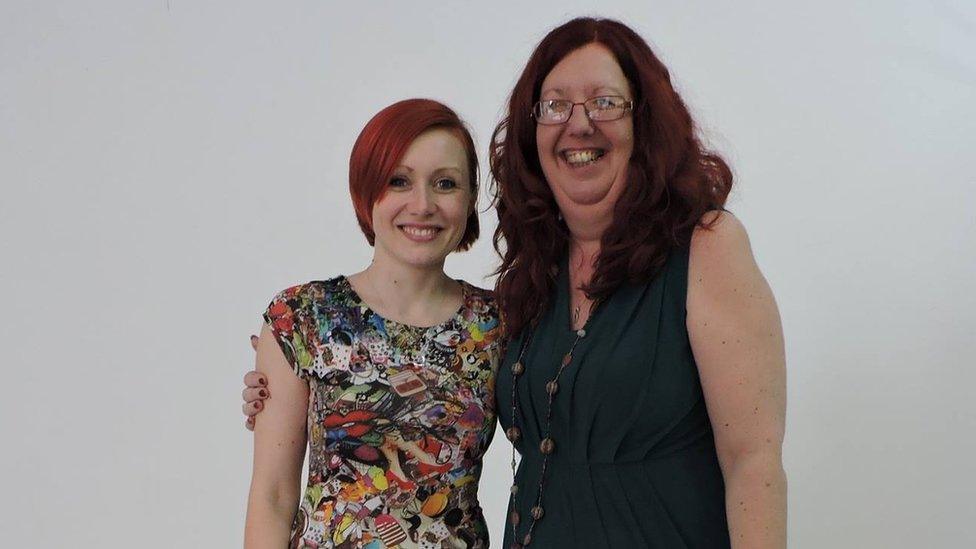'I'm grateful to be alive after the combined pill caused me to have blood clots'
- Published

Chrissy Perkins was 22 when doctors found out her lungs were full of blood clots.
"I'm very, very lucky to be here today," says Chrissy, who'd been taken to hospital by her mum after she started having fits.
Now she wants to raise awareness that the combined contraceptive pill can, in rare cases, be life-threatening.
Chrissy, who's now 29, first went on the pill aged 16 to help with her painful periods.

Chrissy shaved her head to raise money to help victims and survivors of pulmonary embolisms
It didn't cause her any problems in the first few years but then she began to get dizzy spells and nausea.
"I didn't have the typical symptoms for having a blood clot in the lungs. A lot of people have like a stabbing pain and a cough," she says.
"I was really poorly for quite a long time while they tried to figure out what was wrong with me."
She went to her doctor but they couldn't work out what the problem was.
"The pill was the only medication I was taking at the time but due to my symptoms it lead them down a path of thinking it could've been an ear infection or something like that," says Chrissy.
"They didn't think to relate it to the pill."
Every year, thousands of people in the UK get blood clots. They're easily treated but can be fatal if left unchecked.
The combined contraceptive pill slightly raises a woman's risk of developing clots, because it contains the hormone oestrogen, which causes blood to congeal more easily.

Chrissy and Lesley, who also had pulmonary embolisms
Doctors are given guidelines on prescribing the pill and should check if you have any risk factors.
Clots are more common among people who are over 65, overweight, smoke or sit down for most of the day.
"None of us thought, because of my age, it could be a blood clot," says Chrissy.
"But I've now met so many young people that have had blood clots."
In A&E, she was put on a blood thinning medicine to get rid of the clots so she could breathe properly.
Doctors then carried out tests and discovered the oestrogen in her pill had caused the problems.
It took two years for Chrissy to recover from the pulmonary embolisms. She lost her job and had to move back in with her mum.
But the 29-year-old says she's grateful to be alive and wants to use her experience to inform other women.
"Just take a second to see what the symptoms would be if you were to have a clot and make sure that you're aware," she says.
"So even if your doctor doesn't say anything, you might be prepared to say, 'Actually, maybe could you look for a blood clot? Could you test me?'"
You can hear more from Chrissy in BBC Radio 1 and 1Xtra Stories.
More information about sexual health and relationships is available at BBC Advice.
Find us on Instagram at BBCNewsbeat, external and follow us on Snapchat, search for bbc_newsbeat